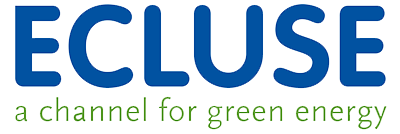ECLUSE dives under the river Scheldt from left to right bank


ECLUSE is a collaboration between Indaver, SLECO, Maatschappij Linkerscheldeoever, FINEG and Water-link. Indaver & SLECO annually convert approximately 1 million tons of household and commercial waste into energy and materials at the waste-to-energy site in Doel. The energy is delivered directly to five neighboring companies in the form of steam through the ECLUSE network. They access the steam network as needed. However, the waste-to-energy site can deliver more steam than the current need in the Waaslandhaven. Today, the surplus steam is converted into electricity, which is less energy efficient. For this reason, ECLUSE actively sought additional steam consumers.
At least 100,000 tons fewer CO2 emissions
Evonik has a large steam demand at its site in Antwerp near the Tijsmanstunnel, which is currently filled with natural gas. By expanding ECLUSE to the right bank of the river Scheldt, Evonik will be able to benefit from the steam in its chemical processes. This will result in at least 100,000 tons of CO2 emissions being avoided as Evonik will have to use less fossil fuels. The amount of natural gas that can be saved is comparable to the natural gas consumption of 38,000 households. The waste processed in Doel is about 50% biogenic. As a result, an equal amount of the produced steam is 'green heat'.
Tunnel as a necessary connection for a sustainable industrial cluster
The waste-to-energy site on the left bank of the Schelde wants to maximize the use of steam produced during waste treatment for heat applications. Evonik, located on the right bank of the river Scheldt, has a large demand for steam. Connecting them both leads to a greening of the energy supply within an industrial symbiosis. To realize the connection, the construction of a Scheldt tunnel is planned. After Evonik, other companies on the right bank can also connect. The tunnel forms an essential link that makes it possible to create a sustainable, circular, and climate-neutral chemistry on both banks of the river Scheldt.
In addition to the ECLUSE 2 steam pipeline, the tunnel will provide space for additional pipelines. There is a clear need for additional pipeline capacity under the Scheldt. The ECLUSE 2 tunnel meets this need and thus facilitates the growth opportunities for the Antwerp industrial cluster. In the future, the further cascading of heat can also be investigated by connecting the return pipeline to the Antwerp North Heat Network.
Society wins on many fronts
The benefits of ECLUSE 2 for people and society are huge:
- Less fossil fuels, more renewable energy.
Companies that connect to ECLUSE 2 can save significantly on fossil fuels by turning off their own steam-producing facilities. The steam they use from ECLUSE is 50% green and does not require fossil fuels.
- Less CO2 emissions
With the connection of Evonik, a yearly saving of at least 100,000 tons of CO2 emissions will be achieved by shutting down existing gas-fired facilities. When ECLUSE 2's full capacity is utilized, the CO2 savings could reach at least 150,000 tons per year.
- Meeting energy and climate goals
ECLUSE 2 will make a significant contribution to meeting the goals of the National Energy and Climate Plan for the period 2020 and 2030.
- In terms of growth of heat networks: ECLUSE 2 can meet 10 to 24% of the target.
- In terms of growth for green heat production: ECLUSE 2 can meet 7.5 to 19% of the target.
- Less energy loss
Less energy is lost in the thermal processing of waste. Direct use of steam is more energy-efficient than converting steam to electricity
